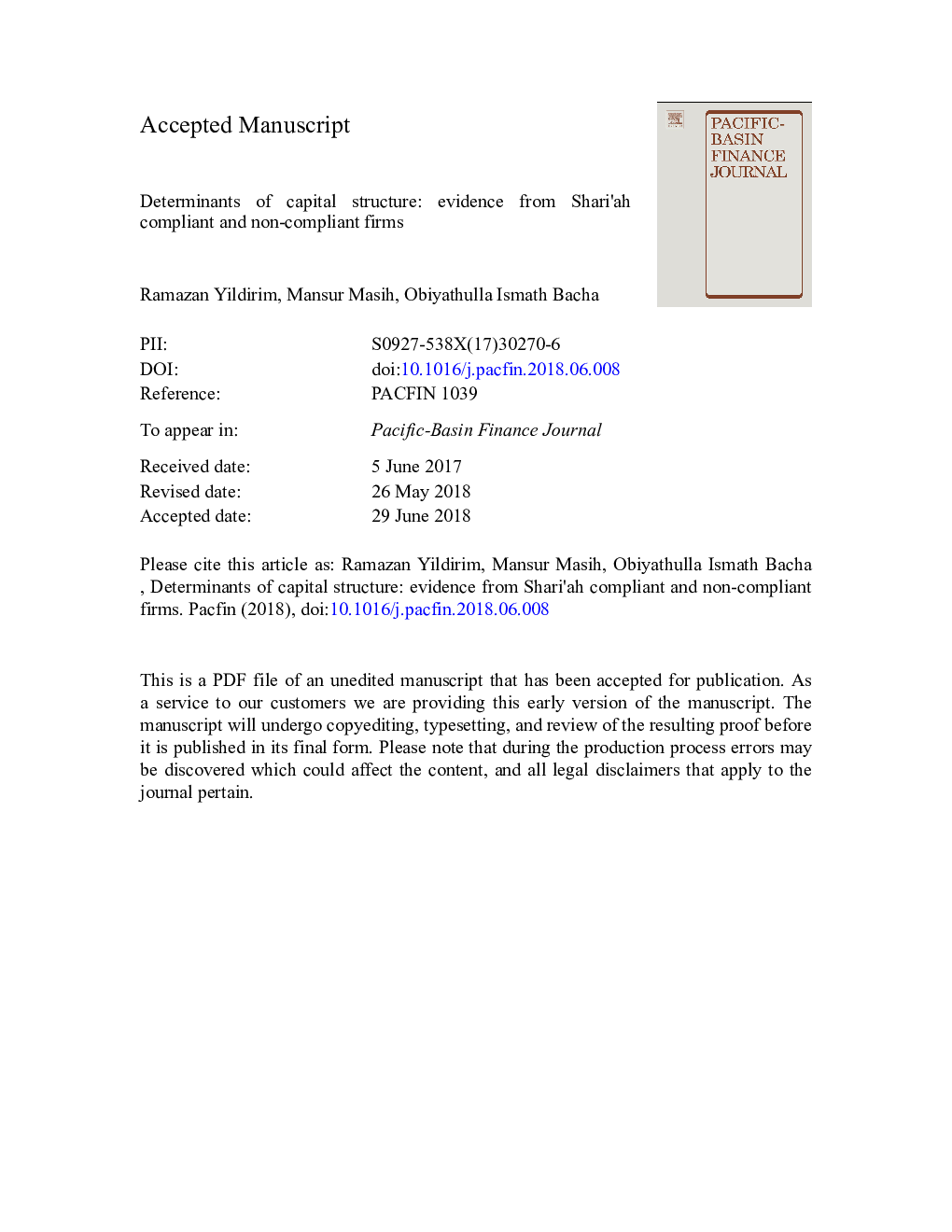| کد مقاله | کد نشریه | سال انتشار | مقاله انگلیسی | نسخه تمام متن |
|---|---|---|---|---|
| 7374110 | 1479840 | 2018 | 50 صفحه PDF | دانلود رایگان |
عنوان انگلیسی مقاله ISI
Determinants of capital structure: evidence from Shari'ah compliant and non-compliant firms
ترجمه فارسی عنوان
عوامل تعیین کننده ساختار سرمایه: مدارکی از شرکت های سازگار و غیر سازگار با شرع
دانلود مقاله + سفارش ترجمه
دانلود مقاله ISI انگلیسی
رایگان برای ایرانیان
کلمات کلیدی
موضوعات مرتبط
علوم انسانی و اجتماعی
اقتصاد، اقتصادسنجی و امور مالی
اقتصاد و اقتصادسنجی
چکیده انگلیسی
Many Muslim individual and institutional investors seek to invest only in stocks that are compliant with the Shari'ah (i.e. Islamic law). Among others, Dow Jones addressed this demand and has developed their proprietary screening methodologies to identify Shari'ah compliant firms (SC). One key factor that distinguishes SC firms from their non-compliant peers (SNC) is that the former is not allowed to cross the leverage threshold of 33%. Due to the restrictions imposed on them, it is expected that SC firms exhibit different capital structure compared to the SNC firms. The purpose of this initial comparative study is to analyze the most reliable debt determinants identified in the literature on both firm types. This study utilizes static panel data techniques on the sample consisting of SC and SNC firms from 7 countries and 7 industries over the years 2004-2014. Our study is inconclusive and it shows that most of the determinants do exhibit different effects among both firm types. Depending on the leverage measure, the effect of different independent variables on firms' capital structure varies. A uniform effect can be exerted for debt determinants profitability for both leverage measures, and growth opportunities, firm size and tangibility for market leverage only. Our robustness tests reveal that the impact of some debt determinants on firms leverage remains consistent. The coefficient sign and significance suggests, that the capital structure decision of both firm types, both are better explained by the Pecking Order Theory for book and by the Trade-Off Theory for market leverage, respectively.
ناشر
Database: Elsevier - ScienceDirect (ساینس دایرکت)
Journal: Pacific-Basin Finance Journal - Volume 51, October 2018, Pages 198-219
Journal: Pacific-Basin Finance Journal - Volume 51, October 2018, Pages 198-219
نویسندگان
Ramazan Yildirim, Mansur Masih, Obiyathulla Ismath Bacha,
